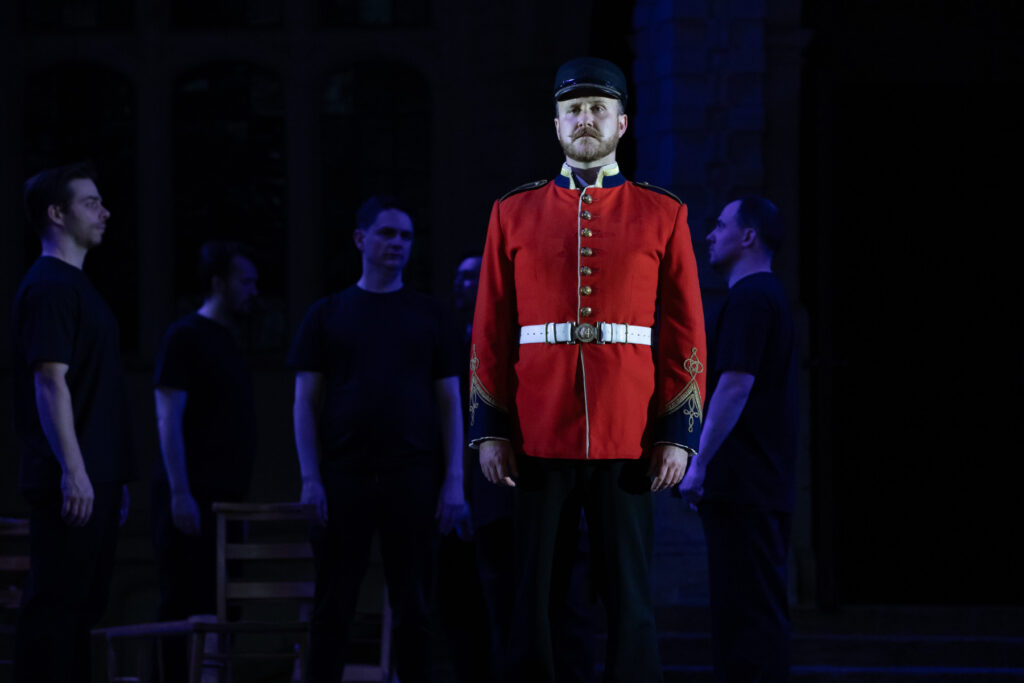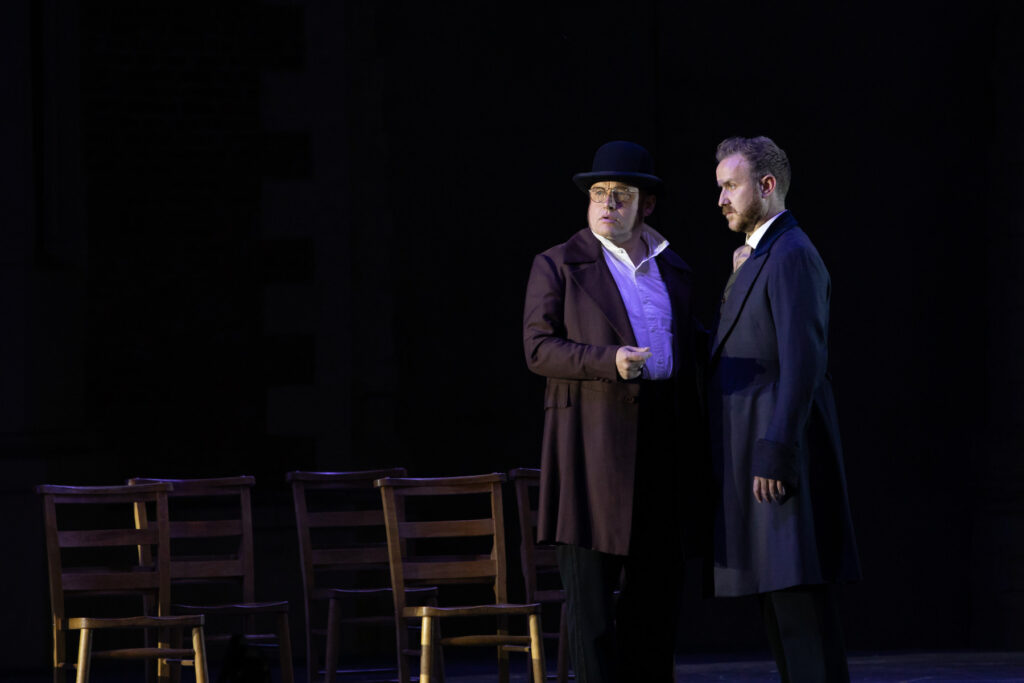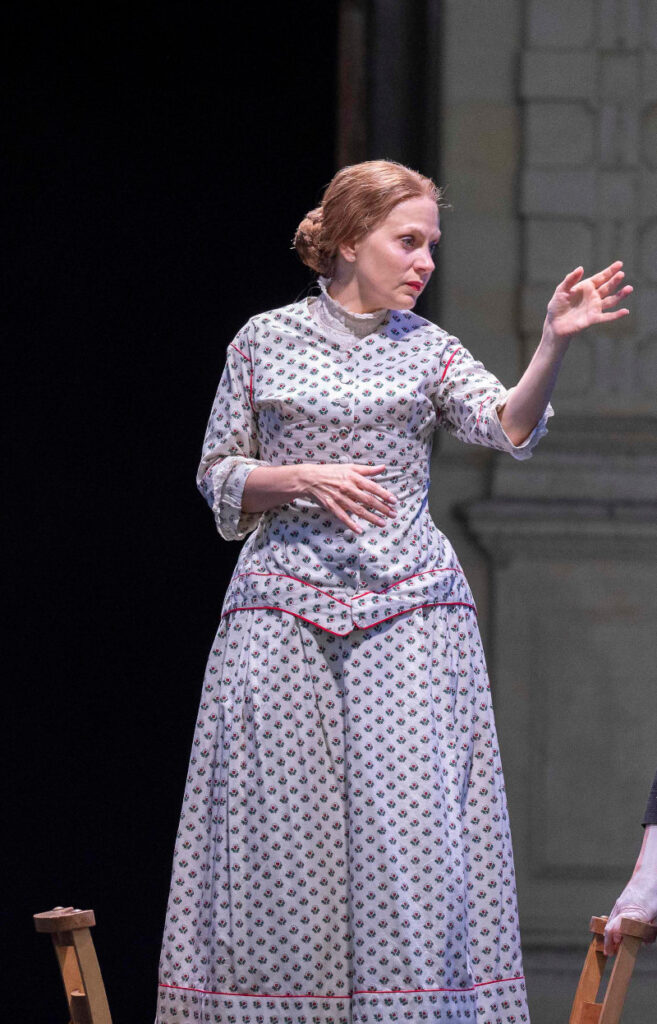A “blunder” was the verdict from Puccini’s biographer Mosco Carner in relation to the composer’s rarely performed second opera. Much has been voiced about the shortcomings of Edgar, Puccini himself declaring it a dud. That doesn’t mean we should not occasionally hear performances of a work once maligned by an early critic as a “sin against art”. That kind of pompous assessment doesn’t allow for considerations of sympathetic performance or direction. Of course, no matter how effective those qualities are, they cannot redeem a work for its poor libretto or its failure, as Charles Osbourne once complained, to “show character in action”. Edgar is certainly plot-driven, where actions are shown and not motivated, but Puccini should perhaps be criticised more for poor judgement over his choice of librettist than any musical shortcomings.

First staged in Milan on Easter Sunday 1889, the opera’s limitations have not deterred stagings by a handful of enterprising companies over here and its UK premiere was by given by Hammersmith Municipal Opera in 1967. Since then, Edgar has been presented by Dorset Opera (1980), Scottish Opera (2018) and now Opera Holland Park, a company already well regarded for illuminating lesser-known repertoire by Italian composers. Due to some positive press coverage in 2022 for the company’s staging of Puccini’s neglected first opera, Le Villi, it seemed natural to showcase Edgar in this centenary year. This time round, reviews have been less than generous, though largely about the cardboard characters within a work that the composer admitted was “defective from the dramatic point of view”. That’s an understatement. Ferdinando Fontana’s crass libretto (drawn from an obscure play by Alfred de Musset) concerns a bounder (Edgar) torn between the virtuous Fidelia and the alluring, morally ambiguous Tigrana with whom he elopes. After second thoughts he joins the army, fakes his death and returns in disguise, eventually returning to his affection for Fidelia. In a fit of jealousy Tigrana kills her faithful rival.

Despite the sensationalist plot and verbal banalities, there was much to enjoy from the work’s tunefulness (Puccini’s style already distinctive in some standout arias), which in turn produced some fine, if variable, singing. Key to this performance was the Canadian Naomi Woo’s focused direction of the City of London Sinfonia, who carved out the score’s opulence, without overdoing its schmaltz, and shaping its melodic content with a natural sense of line. Also in her favour was her alert ear for balance, considering the enclosed position of the orchestra within Holland Park’s wraparound stage.
Ruth Knight’s no-frills production updates 14th century Flanders to early last century with costumes of the principal singers evoking Edwardian England. Dressed in black with chalk-coloured hands, the Holland Park Chorus made for an oddly unsettling group; a two-tone idea presumably to underline the essential contradictions within the eponymous anti-hero. In the title role Peter Auty made the most of his arias. While never quite unlocking his tenor to its full potential, he sang with plenty of ardour when regretting his desertion of Fidelia. Few can be in any doubt that Puccini’s ‘O soave vision’ is a little gem.

As the chaste Fidelia, Anne Sophie Duprels sounded a little effortful at first but poured everything she had into Act 3’s ‘Nel villaggio d’Edgar’, sung while believing her beloved Edgar is lying in a coffin. Gweneth Ann Rand as the temptress Tigrana delivered powerful tone for her opening ‘Tu voluttà di fuoco’, her manner not exactly seductive, more of someone carrying a chip on her shoulder for being abandoned by her parents as a child and having to resort to the world’s oldest profession. By far the most convincing voice was that of Julien Van Mellaerts as Frank, his richly upholstered baritone and expressive range put to good use in his Act 1 lament ‘Questo amor, vergogna mia’. Just a pity Puccini and Fontana give him so few opportunities to shine elsewhere.
Alas, without any character development, there was little chance for these singers to feel any great sense of engagement, their relationships largely uninvolving. Little wonder Puccini inscribed the score for the 1905 version (heard here) with the words “May God preserve you from this opera”. But knowing this work is unlikely to emerge again for many years to come, Opera Holland Park’s exhumation is admirable, and no doubt much appreciated by operatic ‘train spotters’. Credit should also go to the three children acting out the young lives of the central protagonists, the excellent voices of the Pimlico Musical Foundation and Tiffin School, and Holland Park Chorus. Edgar is no Tosca, but occasionally it’s good to hear a composer’s first faltering steps.
David Truslove
Edgar – Dramma lirico in three acts
Music: Giocomo Puccini
Libretto: Ferdinando Fontana based on a play by Alfred de Musset
Cast and production staff:
Edgar – Peter Auty; Fidelia – Anne Sophie Duprels; Tigrana – Gweneth Ann Rand; Frank – Julien Van Mellaerts; Gualtiero – James Cleverton; Children from Pimlico Musical Foundation and from Tiffin School.
Ruth Knight – Director; Mark Jonathan – Lighting Designer; Fight Director – Haruko Kuroda; City of London Sinfonia; Naomi Woo – Conductor.
Opera Holland Park, London, 4 July 2024.
Top Image: Gweneth Ann Rand as Tigrana and the OHP Chorus.
All photos © Ali Wright.